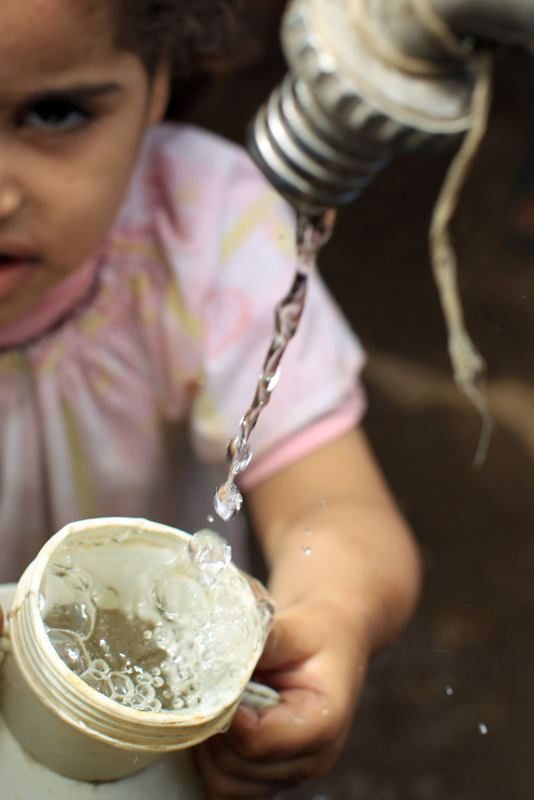The European Bank for Reconstruction and Development’s investments in 42 drinking and tap water projects reached 2m Euros since 2013.
“The bank is focused on a programme that improves the capacity of water usage and achieves economic, social, and environmental benefits,” said Hana Khaled, first sector banker at the European Bank for Reconstruction and Development.
The bank is currently in cooperation with the Holding Company for Drinking Water and Sanitation to develop a mobile application that allows the user to know where drinking water is cut and when it will be restored.
The bank also contributes to raising awareness.
The deputy head of the Planning Sector at the Ministry of Water Resources and Irrigation, Mamdouh Antar, pointed out that Egypt’s water resources are limited. He explained that Egypt has roughly 59bn cubic metres of water including Egypt’s yearly share of Nile water which amounts to 55bn cubic metres.
Moreover, Egypt’s yearly demand of water is 80bn cubic metres, meaning there is a 20bn cubic metre shortage.
Antar clarified that the ministry seeks to optimise water use, by reusing every cubic metre of water at least three times before it becomes sewage.
He also confirmed cooperation between the ministries, the bodies, and the Holding Company for Drinking Water and Sanitation to create mechanisms to take advantage of climate change and floods. The cooperation also aims to raise awareness for the issue, which is an important factor in reaching their goals.
“The ministry is mandated to develop strategies and plans to achieve a balance between resources and needs,” said Antar.
Hossam El-Imam, director of the Regional Centre for Water Ethics in the Ministry of Water Resources and Irrigation, said that “research has proved that the legal and political solutions have failed to find a sound and permanent solution for water ethics.”
“Therefore,” he added, “raising awareness is indispensable to prove water’s worth.”
This came during the closing session of an introductory week for mass communication students that participated in the creative media competition to design a guiding water consumption campaign.
This was organised by the Holding Company for Drinking Water and Sanitation, in collaboration with the European Union, UNICEF, the European Bank for Reconstruction and Development, and the Agency for German International Cooperation.




